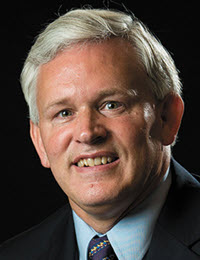Abstract
Excerpted From: Jonathan R. Alger, It's Not Free Speech: Race, Democracy and the Future of Academic Freedom, Book Review of Michael Bérubé and Jennifer Ruth's It's Not Free Speech: Race, Democracy and the Future of Academic Freedom, 47 Journal of College and University Law 179 (2022) (17 Footnotes) (Full Document)

Starting with its provocative opening sentence, Michael Bérubé and Jennifer
Ruth’s new book, It’s Not Free Speech: Race, Democracy, and the Future of Academic
Freedom, makes clear that this volume will be no ordinary recitation of the history
or current state of academic freedom. That first sentence asks a simple but loaded
question: “Does academic freedom extend to white supremacist professors?”
The authors' answer to this question is clear: Bérubé and Ruth express a strong belief that academic freedom needs to be rethought so as not to protect professors who espouse perspectives that the authors would characterize as racist and lacking any sort of sound evidentiary basis. The authors take great pains to distinguish academic freedom protections from the constitutional protections of free speech, arguing that judgments about the appropriate exercise of academic freedom should be put squarely in the hands of faculty members, not administrators. Writing in the context of the Black Lives Matter movement and the wave of protests that followed the killing of George Floyd and other Black Americans, Bérubé and Ruth argue that broad free speech principles have too often been used to shield white supremacist professors from consequences for hateful, damaging statements that fail to meet rigorous professional norms. The authors rely on a mixture of history, law, experience, and shared governance principles to reinforce their arguments. If nothing else, their analysis certainly sets the stage for lively discussions and debates regarding the appropriate role, limits, and arbiters of academic freedom.
The book begins by naming names. The authors are direct in labeling instances of what they characterize as white supremacist speech. They argue that academic freedom in such instances has been “weaponized in ways that undermine democracy.” As colleges and universities become more diverse, their premise is that some faculty members (especially if they have tenure or other forms of status and job security) can hide behind the broad contours of free speech as understood under the Constitution to flout professional standards--while causing real harm to students from historically underrepresented backgrounds. In making this argument, Bérubé and Ruth explicitly understand and justify academic freedom and the educational mission in terms of serving the common good--namely, to support a diverse democracy that is truly inclusive and welcoming to individuals of all backgrounds.
While this understanding might seem unremarkable on its face, it is worth noting at the outset that much of the public discourse about the purpose of higher education today focuses on the notion of higher education as a private benefit (i.e., as a way to prepare individuals for good-paying jobs in the workforce), rather than as a public good. Many of the current attacks on higher education from outside the academy are based on a perception that colleges and universities focus too much on abstract theory, and thus are not adequately equipping students with the skill sets they need for the “real world” of work. Moreover, many politicians and pundits today assert that a major problem with higher education is its overwhelmingly liberal bent. This particular volume seems focused on a higher education audience, rather than on these skeptics outside of higher education, and thus the book is not likely to win many converts to its proposals from the latter group.
[. . .]
In the face of democratic backsliding across the world, Bérubé and Ruth tell a cautionary tale in asserting that the stakes in this debate are higher than we might have realized only a few years ago. As they warn in their conclusion, “the struggle for academic freedom is the struggle for democracy; but that struggle must be predicated on the belief that academic freedom is a matter of democratic competence, not a license to say and believe anything and everything imaginable.” All of us in higher education could benefit from thoughtful reflection and introspection on this admonition. Have we put too much faith in abstract, near-absolutist principles of free expression and in a search for truth when the entire concept of truth is itself under relentless siege in the public square? Have we paid too high a price for the protection of hateful and bigoted expression that has hindered full participation in higher education? Does such expression really add value in higher education at all? These are questions well worth debating, using all the tools of critical thinking that we seek to develop in our students.
Jonathan R. Alger is President of James Madison University in Harrisonburg, VA.


